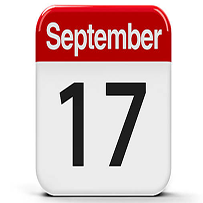
Why Pay Estimated Tax
To avoid interest and penalties, you must make sufficient federal and state income tax payments long before your April filing deadline through withholding, estimated tax payments, or a combination of the two. The third 2018 estimated tax payment deadline for individuals is September 17.
If you don’t have an employer withholding tax from your pay, you likely need to make estimated tax payments. But even if you do have withholding, you might need to pay estimated tax. It can be necessary if you have more than a nominal amount of income from sources such as self-employment, interest, dividends, alimony, rent, prizes, awards or the sales of assets.
Who Must Pay Estimated Tax
Individuals, including sole proprietors, partners, and S corporation shareholders, generally have to make estimated tax payments if they expect to owe tax of $1,000 or more when their return is filed.
Corporations generally have to make estimated tax payments if they expect to owe tax of $500 or more when their return is filed.
You may have to pay estimated tax for the current year if your tax was more than zero in the prior year.
How to Confirm 2018 Withholding
If you determine you don’t need to make estimated tax payments for 2018, it’s a good idea to confirm that the appropriate amount is being withheld from your paycheck. To reflect changes under the Tax Cuts and Jobs Act (TCJA), the IRS updated the tables that indicate how much employers should withhold from their employees’ pay, generally reducing the amount withheld.
The new tables might cause some taxpayers to not have enough withheld to pay their ultimate tax liabilities under the TCJA. The IRS has updated its withholding calculator to assist taxpayers in reviewing their situations by doing a paycheck checkup.
When to Pay Estimated Taxes
Estimated tax payments are spaced through the year into four periods or due dates. Generally, the due dates are April 15, June 15 and September 15 of the tax year and January 15 of the next year, unless the date falls on a weekend or holiday.
Saturday, Sunday, holiday rule. If the due date for an estimated tax payment falls on a Saturday, Sunday, or legal holiday, the payment will be on time if you make it on the next business day that is not a Saturday, Sunday, or a holiday.
Estimated tax is calculated by factoring in expected gross income, taxable income, deductions and credits for the year. The easiest way to pay estimated tax is electronically through the Electronic Federal Tax Payment System. You can also pay estimated tax by check or money order using the Estimated Tax Payment Voucher or by credit or debit card.


